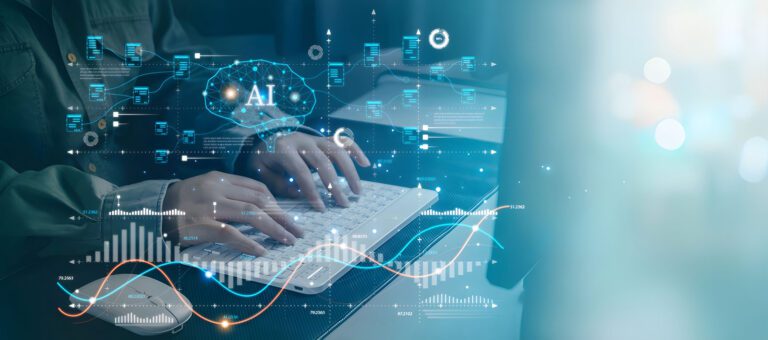The sphere of accounting, traditionally characterized by precision and adherence to established practices, is experiencing a radical transformation. Certified Public Accountants (CPAs) have long been the vanguards of financial accuracy and compliance, labouring over ledgers with meticulous care. In this new era, however, Artificial Intelligence (AI) has seamlessly transitioned from being a futuristic concept to a practical co-pilot for CPAs, assisting with complex data analysis and decision-making processes. This technological ally has revolutionized the way financial professionals interact with data, providing automation that manages repetitive tasks and generates deep insights into financial patterns. As noted in a recent ‘Accounting Today’ feature, “AI is not just an upgrade in the accounting toolkit—it’s a formidable ally, redefining the landscape and empowering CPAs with unprecedented data mastery.” AI’s role in accounting marks a significant shift towards a future where the precision of the human mind and the efficiency of AI work in concert to navigate the complexities of financial data.
Transformation of Accounting Sector using AI
The accounting sector is witnessing a tangible shift as firms embrace Artificial Intelligence (AI) to enhance their service offerings. Deloitte, for instance, has implemented AI in its auditing services, employing ‘Cognitive Risk Sensing’ to identify financial risks before they escalate. KPMG’s ‘Digital Ledger Services’ harness blockchain and AI to improve transparency and accuracy in bookkeeping and financial reporting. EY has been a front-runner too, leveraging AI to analyse lease contracts more efficiently in their advisory services, a task that once consumed countless hours of human effort. PwC’s ‘GL.ai’ is an AI-driven tool that monitors transactions to prevent anomalies and fraud. These pioneering applications of AI in accounting are not merely experimental but have become integral components that offer a competitive edge and reflect a broader industry trend. They exemplify the shift from traditional methods to a tech-driven approach where AI acts as an enabler, streamlining operations and offering insights that were previously unattainable or would require a prohibitive investment of time and resource.
AI Revolution in Accounting
The AI revolution in accounting is underscored by compelling numbers that showcase its rapid market expansion. According to a detailed analysis by Mordor Intelligence, the AI in Accounting Market size is on an impressive growth trajectory, expected to burgeon from USD 1.17 billion in 2023 to a staggering USD 4.96 billion by 2028. This represents a robust compound annual growth rate (CAGR) of 33.50% over the five-year forecast period. Such growth is reflective of AI’s increasing role in refining precision, effectiveness, and decision-making within the accounting domain. As AI takes over repetitive tasks such as data input, bookkeeping, and financial statement preparation, accounting professionals are shifting their focus to more strategic responsibilities that capitalize on AI’s analytical strength.
In the landscape of accounting, AI’s practical applications are creating significant shifts in everyday tasks. For example, Deloitte has implemented an AI-powered document review platform, utilizing machine learning (ML) and natural language processing (NLP) to speed up sifting through and analysing contracts. This technology has drastically increased the efficiency and accuracy of their contract review process.
PwC has developed GL.ai, a bot that employs machine learning to scrutinize billions of data points rapidly, effectively enhancing the accuracy of audit processes by detecting discrepancies that could indicate fraudulent activities, a task that is challenging for even the most seasoned professionals.
KPMG has harnessed AI for intelligent forecasting, combining predictive modelling and advanced analytics. This tool allows accountants to anticipate future trends and risks, enabling a more strategic approach to planning, budgeting, and forecasting.
These advancements illustrate how AI is becoming an integral ‘co-pilot’ for CPAs, simplifying complex tasks, and driving a shift towards more strategic and advisory roles in the accounting profession.
How CPAs Work life will change with AI
With AI’s advent, a CPA’s typical day now leans less on manual data entry and number crunching, and more on analysing the output from AI-driven software. Tasks like document review, which used to take up a considerable part of their day, are now expedited by AI tools that can process and analyse data at unprecedented speeds. The CPA’s focus has shifted towards interpreting this data, making strategic decisions, and advising clients based on insights gleaned from AI. This shift allows for a more dynamic, flexible workday, with CPAs engaging in more client interactions and higher-level, value-added services.
The introduction of AI in accounting has catalysed a profound shift in the roles of accounting professionals. Today’s CPAs find themselves leveraging their analytical skills more than ever, as AI systems handle the bulk of data processing tasks. This paradigm shift has allowed accountants to focus on providing strategic insights and advisory services, transforming them from traditional number-crunchers to forward-thinking business consultants. The landscape of the profession is evolving, with a growing emphasis on technological fluency and strategic acumen. Accountants are now expected to be proficient in interpreting AI-generated data and to use these insights to guide business decisions and strategy, marking a significant evolution in their professional responsibilities.
Ethical Considerations in using AI
These examples underscore the importance of not taking AI decisions at face value. Accountants must critically evaluate AI outputs, considering the potential for bias, and ensure that AI-enhanced decisions are made with a thorough understanding of the underlying data and models. Companies are urged to address these issues by establishing governance and controls, diversifying development teams, and continuously monitoring AI systems to mitigate biases. Hypothetical scenarios, like an algorithm determining healthcare provision that discriminates against patients based on language proficiency or ethnic background, illustrate the potential consequences of unaddressed bias. Accountants and firms must be proactive in preventing these biases from influencing their work and the financial decisions that stem from it.
Real World Case Studies of AI in Accounting
HBK CPAs & Consultants: They began using Mindbridge Ai’s analytics platform primarily for journal entry testing but expanded its use for planning and trend analysis after realizing its full potential. This allowed HBK to rapidly identify anomalies and provide value-added consulting services to their clients, enhancing the efficiency and scope of their audits.
Baker Tilly: After acquiring the data analytics firm Talavant, Baker Tilly leveraged AI and analytics tools like Microsoft Power BI, Tableau, and Qlik to provide real-time financial insights to their clients, significantly reducing the time lag in financial reporting. Their approach resulted in a CFO transforming their department to focus on insights rather than data compilation, and another client was able to grow their accounting team due to the clear value of analytics.
LBMC: They integrated data analytics into their services, offering solutions like ‘Dashboard in a Day’ which provides quick, impactful analytics insights. This service has been particularly beneficial for mid-market companies, allowing them to make informed business decisions rapidly.
The Future of AI in Accounting
The future of AI in accounting is poised to be revolutionized by the advent of Generative AI and Large Language Models (LLMs). These sophisticated AI systems, which can generate human-like text, interpret complex language, and even code software, are set to profoundly impact the profession. Accountants will likely see a shift toward more strategic roles as LLMs take on tasks such as generating financial narratives, conducting linguistic analysis of regulations, and automating the creation of complex financial models. As these technologies mature, they could enable a new era of hyper-personalized financial advice, transform client interactions, and lead to the development of more nuanced financial strategies tailored to individual business needs.
In conclusion, as the AI revolution reshapes the accounting landscape, CPAs must proactively embrace these technologies. They should invest in upskilling, becoming adept at interpreting AI outputs and integrating them into strategic advisement. CPA firms must also innovate, re-engineering their workflows around AI capabilities to provide enhanced decision-making support. Firms that adapt quickly, fostering a culture of continuous learning and technology adoption, will not only survive but thrive. They will position themselves at the forefront of the accounting evolution, offering cutting-edge services that blend traditional accounting excellence with the transformative power of AI.
About Author

Ram is a Cloud Security Expert with 30+ years of IT experience, holding 26 patents in Infra, AI-ML, and Automation. He’s a Wipro Fellow, an Independent Consultant for Fortune 15 companies, and has won international awards for Automation. Ram’s cost rationalization work benefited enterprises like Citi Bank, Credit Suisse, and UBS.











